Gordon Ramsay’s Best Mashed Potatoes
Simple to prepare and sure to delight a large group, this recipe for Gordon Ramsay’s Best Mashed Potatoes is the epitome of homemade comfort cuisine. This is a quick and simple side dish that can be served at any time of year.
Now that Thanksgiving and Christmas are just around the corner, I thought it would be fun to start sharing some of my go-to recipes for the season.

Why You’ll Love This Recipe
- Dense and Smooth in Texture. These light and airy mashed potatoes are incredibly creamy since they are made with sour cream, milk, and butter.
- Garlicky Potatoes. These velvety mashed potatoes with a hint of garlic have a beautiful flavor, and while you are free to exclude the garlic if you want, I strongly encourage you to include it.
- A Simple Dish to Serve as an Accompaniment. This dish may easily be multiplied to accommodate a large group because it only requires a few pantry essentials and requires very little preparation time.
- A Versatile Side Dish. This recipe is the ideal recipe for a side dish, and it goes well with a wide variety of proteins. It’s always a hit at my house, no matter the season!
Is Eating Potatoes Good For You?
Potatoes contain a sizable amount of carbohydrates, which has led many individuals to be under the impression that eating them is not “healthy.” However, they have very little fat and a plethora of different vitamins and minerals, which are great for a healthy diet. The way you prepare your potatoes will contribute to whether they are a health contribution to your diet or not. Additionally, potatoes may not be ideal if you are trying to limit the number of carbohydrates you eat.
Which Types Of Potatoes Are Ideal For Making Mashed Potatoes?
Yukon gold potatoes and russet potatoes are the two varieties of potatoes that work the best for mashing. You should look for potatoes that are starchy and have a texture similar to butter. Mashing red and white potatoes takes more effort and can occasionally result in a paste-like or sticky consistency.
Red potatoes have a stronger flavor than white potatoes. Because of this, picking the appropriate variety of potatoes is essential if you want your mashed potatoes to turn out delicious and creamy.
Gordon Ramsay’s Best Mashed Potatoes Ingredients
- Yukon Gold Potatoes. When it comes to making mashed potatoes, this variety of potatoes is my go-to choice since not only are they buttery and creamy, but they also have a hint of sweetness to them. On the other hand, if I don’t have any Yukon gold potatoes on hand, I like to use russet potatoes instead.
- Sour Cream. I think that mashed potatoes taste even better when sour cream is added to them. However, you may substitute ordinary cream cheese for sour cream if you don’t have any on hand.
- Salt & Pepper. Salt and pepper are essential for imparting flavor to the mashed potatoes.
- Milk. It provides a velvety texture to the dish. You can also use powdered milk if desired.
- Butter. Use sweet cream butter or another type of high-quality butter that is full of fat in this mashed potatoes recipe. Avoid using butter spreads that are low in fat as they can impact flavor and cause your potatoes to be less creamy.
- Chives. When it comes to mashed potatoes, this is one of my favorite herbs to add. You may either include it in the potatoes themselves or use it as a garnish for the dish.
- Garlic. This is an optional ingredient.

Best Additions to Mashed Potatoes
You can add anything you want to your mashed potatoes. Some examples are:
- Sour cream
- Cream Cheese
- Cheddar Cheese
- Chopped Onions
- Blue Cheese
- Dill
- Chili Flakes
How to Make Gordon Ramsay’s Best Mashed Potatoes
- Peel the potatoes and cut them into 2-inch pieces. Rinse the potatoes and place them in a large saucepan.
- Cover the potatoes with water and season with 1 teaspoon of the salt. Boil the potatoes until they are fork tender.
- Drain the potatoes and return them to the saucepan. Add 1/2 cup of the butter, hot milk, sour cream, and salt to taste; mash thoroughly with a potato masher until very creamy. If using garlic, melt the butter with the garlic to infuse the flavor before adding the mixture to the potatoes.
- Remove the mashed potatoes and place them in a serving dish. Drizzle the remaining 2 tablespoons of melted butter on top and sprinkle with freshly ground pepper. Serve garnished with the chopped chives.
What to Serve With Mashed Potatoes
- Pork Chops in the Air Fryer
- Green Beans and Bacon
- Easy Slow Cooker Chicken and Gravy
- Homemade Meatloaf
- Baked Chicken and Ranch Dinner
- Roast Turkey
- Crock Pot Sausage and Peppers
How to Store Mashed Potatoes
- In the Fridge. You may keep your mashed potatoes in the refrigerator for up to four or five days if you store them in an airtight container first.
- In the Freezer. If you intend to store the mashed potatoes in the freezer, you should increase the amount of butter and milk. Then, after they have completely cooled, you may store them for up to two months in a freezer bag or airtight container.
- To Make Ahead. Simply follow the recipe instructions and wait for the mashed potatoes to cool completely. Once the potatoes have reached the desired temperature, place them in an airtight container and then in the refrigerator. When you are ready to use serve the potatoes, simply reheat them in the microwave.
- To Reheat. The easiest way to reheat mashed potatoes is to place them in the microwave, cover them with plastic wrap, and heat them for a couple of minutes until they are completely warmed through. After they are done heating, give them a nice stir, and then serve them.
What is the Simplest Way to Mash Potatoes?
The most effective method is to mash the hot potatoes with a potato masher as soon as the water has been drained from them. I don’t recommend that you use a blender or food processor on the potatoes because doing so will cause them to become sticky.
My Personal Recipe Tips
- Use Yukon gold or russet potatoes.
- Prepare your potatoes by cutting them into chunks. However, if you cut them up into too small of pieces, they may soak up more water resulting in overly watery mashed potatoes.
- To guarantee that the potatoes are cooked through evenly, begin the cooking process with them in cold water. On the other hand, if you begin by cooking the potatoes in hot or boiling water, the skins of the potatoes will cook and become softer, but the inside will remain more firm.
- If you want the mashed potatoes to have a flavor and consistency that is truly creamy, you should begin mashing them as soon as you drain the potatoes.
- You should season the water that you boil the potatoes in with salt. Drain the potatoes carefully to prevent them from becoming mushy.
- Taste the potatoes and season them as needed. This is of the utmost importance; seasoning and tasting the potatoes frequently will them to have the ideal balance of salt and pepper.
- Avoid using a food processor at all costs. However, you may mash the potatoes in the bowl of a cake mixer fitted with the whisk attachment to whip the potatoes, and then transfer the mashed potatoes to the saucepan.
- Make use of whole milk, cheese, sour cream, and butter in this recipe.
- In order to infuse the butter with the taste of the herbs, melt the butter with the herbs.
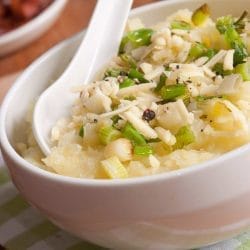
Gordon Ramsay’s Best Mashed Potatoes
Ingredients
- 2 pounds Yukon gold potatoes
- 2 teaspoons salt divided
- ½ cup and 2 tablespoons butter
- ½ cup hot milk
- ½ cup sour cream
- 1 teaspoon minced garlic optional
- chopped chives and fresh ground black pepper for garnishing
Instructions
- Peel the potatoes and cut them into 2-inch pieces. Rinse the potatoes and place them in a large saucepan.
- Cover the potatoes with water and season with 1 teaspoon of the salt. Boil the potatoes until they are fork tender.
- Drain the potatoes and return them to the saucepan. Add 1/2 cup of the butter, hot milk, sour cream, and salt to taste; mash thoroughly with a potato masher until very creamy. If using garlic, melt the butter with the garlic to infuse the flavor before adding the mixture to the potatoes.
- Remove the mashed potatoes and place them in a serving dish. Drizzle the remaining 2 tablespoons of melted butter on top and sprinkle with freshly ground pepper. Serve garnished with the chopped chives.
Notes
- Use Yukon gold or russet potatoes.
- Prepare your potatoes by cutting them into chunks. However, if you cut them up into too small of pieces, they may soak up more water resulting in overly watery mashed potatoes.
- To guarantee that the potatoes are cooked through evenly, begin the cooking process with them in cold water. On the other hand, if you begin by cooking the potatoes in hot or boiling water, the skins of the potatoes will cook and become softer, but the inside will remain more firm.
- If you want the mashed potatoes to have a flavor and consistency that is truly creamy, you should begin mashing them as soon as you drain the potatoes.
- You should season the water that you boil the potatoes in with salt. Drain the potatoes carefully to prevent them from becoming mushy.
- Taste the potatoes and season them as needed. This is of the utmost importance; seasoning and tasting the potatoes frequently will allow you to get an ideal balance of salt and pepper.
- Avoid using a food processor at all costs. However, you may mash the potatoes in the bowl of a cake mixer fitted with the whisk attachment to whip the potatoes, and then transfer the mashed potatoes to the saucepan.
- Make use of whole milk, cheese, sour cream, and butter in this recipe.
- In order to infuse the butter with the taste of the herbs, melt the butter with the herbs.
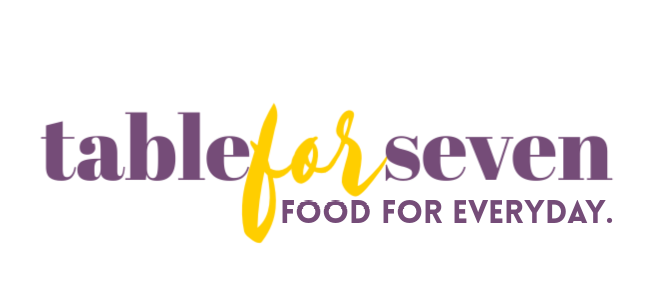
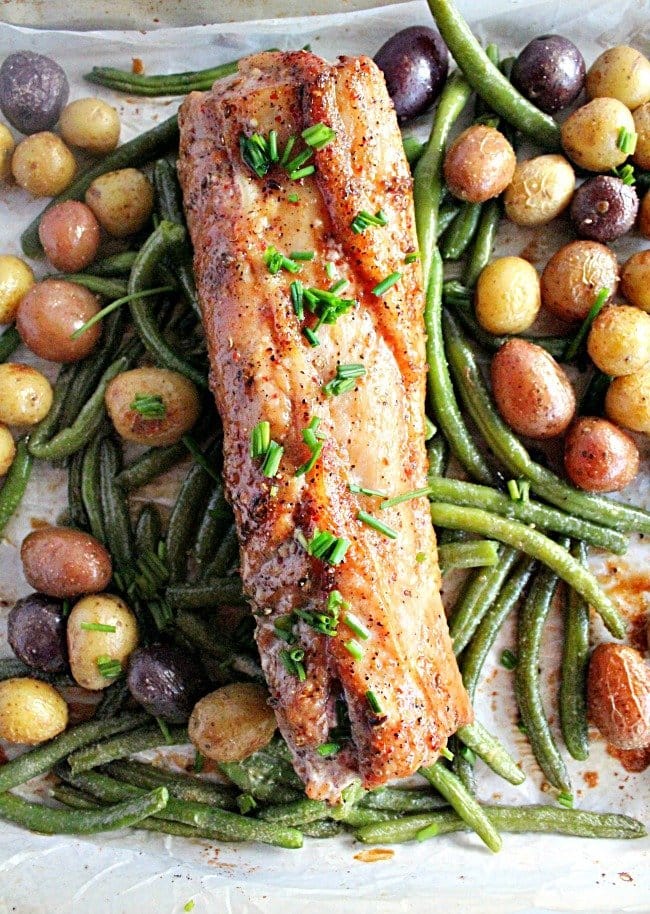
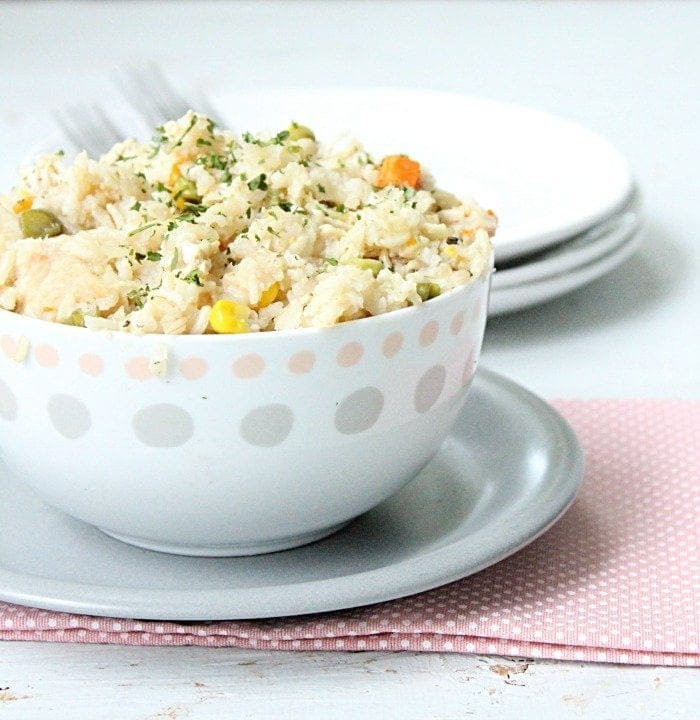
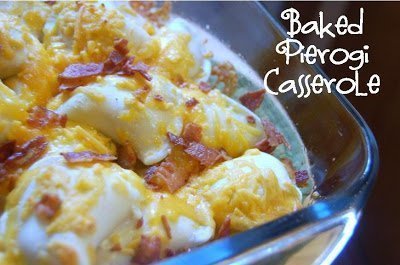
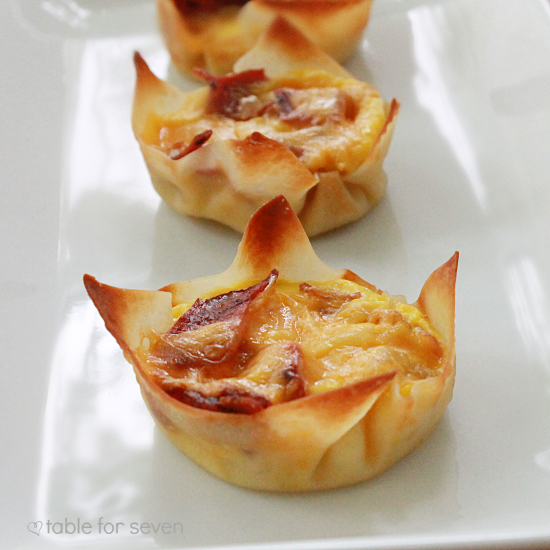
Great recipe and easy to follow. Thanks.